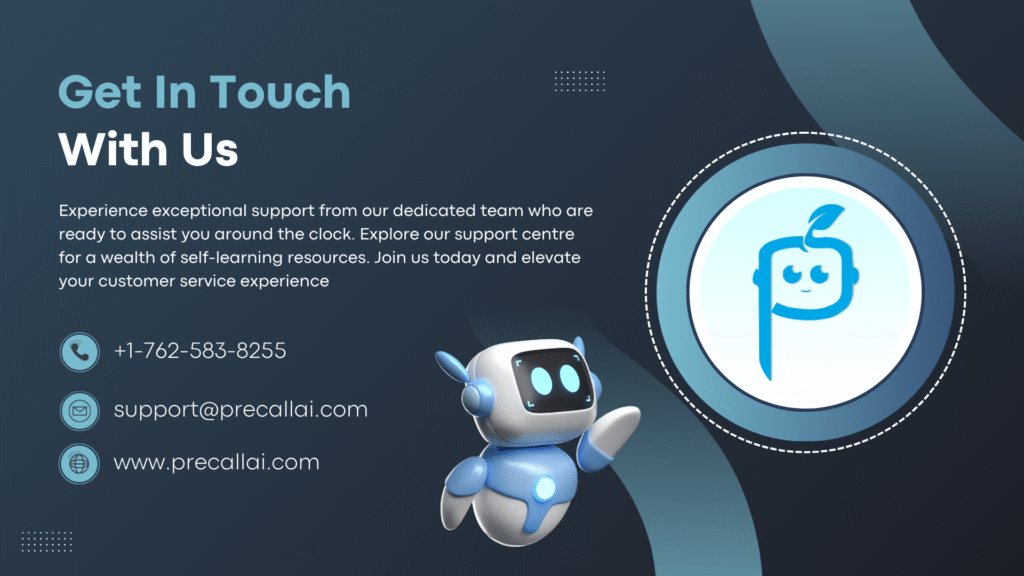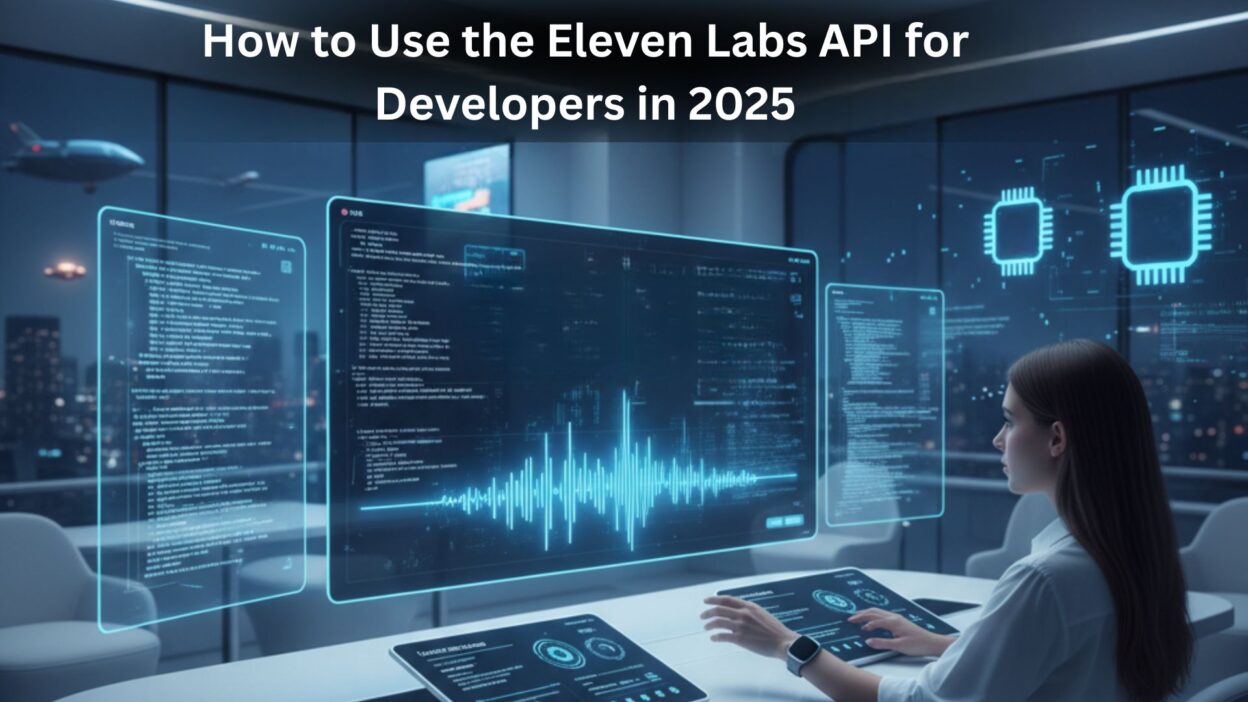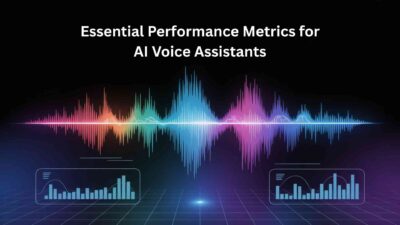Introduction to Voice AI Development
TL;DR Voice technology has transformed how we interact with digital products. Developers need powerful tools to create engaging audio experiences. The ElevenLabs API for developers offers cutting-edge text-to-speech capabilities that sound remarkably human.
Table of Contents
This guide walks you through everything you need to know about implementing voice AI in your projects. You’ll learn setup processes, authentication methods, and practical integration techniques. Modern applications demand high-quality voice output that captures user attention.
The landscape of voice synthesis has evolved dramatically over recent years. Traditional robotic voices no longer meet user expectations. People want natural conversations with technology that feels authentic and responsive.
What Is the ElevenLabs API?
Understanding the Core Platform
ElevenLabs provides a REST API that converts text into lifelike speech. The platform uses advanced neural networks to generate voices with proper emotion and intonation. Developers can access multiple voice options across different languages and accents.
The API handles complex pronunciation automatically without manual phonetic input. This saves significant development time compared to older text-to-speech systems. Your applications can speak naturally without extensive voice training or configuration.
Key Features for Developers
The ElevenLabs API for developers includes voice cloning capabilities for custom audio profiles. You can generate speech in real-time or create longer audio files for later use. The system supports streaming responses for immediate playback in applications.
Multiple voice models offer different levels of quality and processing speed. Developers choose based on their specific use case requirements and performance needs. The API provides granular control over speech parameters like stability and clarity.
Language support extends beyond English to include major global languages. This enables developers to create multilingual applications with consistent voice quality. Each language maintains natural prosody and accent characteristics appropriate to native speakers.
Getting Started with API Access
Creating Your Developer Account
Visit the ElevenLabs website to register for a developer account. The signup process takes only a few minutes to complete. You’ll need to verify your email address before accessing the dashboard.
Free tier accounts provide limited monthly character quotas for testing purposes. This allows you to experiment with the technology before committing to paid plans. The free tier includes access to all standard voices and features.
Paid subscriptions unlock higher character limits and priority processing. Enterprise plans offer dedicated support and custom voice creation services. Choose a plan that matches your expected usage volume and budget constraints.
Obtaining Your API Key
Navigate to your account settings after logging into the dashboard. Find the API section where your unique authentication key is displayed. Copy this key securely as you’ll need it for all API requests.
Never share your API key publicly or commit it to version control systems. Store the key in environment variables or secure configuration management tools. Rotating keys periodically enhances security for production applications.
The ElevenLabs API for developers requires this key in the authorization header of every request. Invalid or expired keys return authentication errors immediately. Keep backup keys available for emergencies during development.
Setting Up Your Development Environment
Required Dependencies and Tools
Install your preferred programming language’s HTTP client library for making API calls. Python developers typically use the requests library or the official ElevenLabs SDK. JavaScript projects benefit from axios or the native fetch API.
Create a project directory with proper organization for API integration code. Separate configuration files from business logic to maintain a clean architecture. Version control helps track changes during development and testing phases.
Set up environment variables to store sensitive credentials like API keys. Most modern frameworks support loading these variables automatically at runtime. This prevents accidental exposure of secrets in shared code repositories.
Installing the Official SDK
The ElevenLabs API for developers offers official SDKs for popular programming languages. Python and JavaScript SDKs simplify integration with pre-built methods and classes. These libraries handle authentication, request formatting, and error management automatically.
Install the Python SDK using pip with a single command-line instruction. JavaScript developers use npm or yarn to add the package to their projects. The SDKs reduce boilerplate code significantly compared to raw HTTP requests.
Documentation for each SDK includes code examples and usage patterns. Review the API reference to understand available methods and their parameters. The SDKs receive regular updates with new features and bug fixes.
Authentication and Authorization
Implementing Secure API Calls
Every request to the API must include your authentication key in the headers. The standard format uses “xi-api-key” as the header name with your key as the value. Proper authentication ensures your requests are processed and billed correctly.
Test authentication independently before building complex integration logic. Send a simple request to verify your key works as expected. Authentication failures provide clear error messages indicating the specific problem.
Production applications should implement retry logic for transient network failures. Rate limiting protects your API quota from accidental overuse during development. Monitor usage through the dashboard to avoid unexpected service interruptions.
Managing Multiple API Keys
Large teams benefit from creating separate keys for different environments or services. Development keys should differ from production keys for security isolation. This prevents test traffic from consuming production quotas or affecting live users.
Document which keys belong to which environments in your team documentation. Implement key rotation schedules to minimize security risks over time. Deactivate compromised keys immediately through the dashboard interface.
Basic Text-to-Speech Implementation
Your First API Request
Start with a simple text-to-speech conversion to understand the basic workflow. Construct a POST request to the text-to-speech endpoint with your desired text. Include the voice ID for the speaker you want to use.
The API returns audio data in MP3 format by default for easy playback. Save the response to a file or stream it directly to audio players. Processing typically completes within seconds for moderate text lengths.
Here’s the essential request structure: endpoint URL, headers with authentication, and JSON payload with text. The voice ID parameter determines which voice model processes your text. Optional parameters control speech characteristics like stability and similarity boost.
Handling API Responses
Successful requests return HTTP 200 status codes with audio content in the response body. Error responses include JSON with detailed messages explaining what went wrong. Parse these errors to implement proper error handling in your applications.
The ElevenLabs API for developers provides different output formats beyond standard MP3 files. The PCM format offers lower latency for real-time applications requiring immediate playback. Choose formats based on your specific use case and platform requirements.
Response headers contain metadata about the generated audio, including duration and sample rate. This information helps with resource planning and user experience optimization. Store metadata alongside audio files for future reference and analytics purposes.
Working with Different Voices
Exploring Available Voice Options
The platform offers dozens of pre-built voices across various demographics and styles. Browse voices in the dashboard to hear samples before integration. Each voice has unique characteristics suitable for different content types and audiences.
Male and female voices span different age ranges and speaking styles. Some voices work better for narration while others excel at conversational content. Test multiple voices to find the best match for your specific application.
Voice IDs remain consistent across API versions for backward compatibility. Store preferred voice IDs in your application configuration for easy management. Users might appreciate the ability to select their preferred voice from your interface.
Voice Cloning Capabilities
The Professional Voice Clone feature allows creating custom voices from audio samples. This requires uploading clear recordings of the target voice speaking naturally. The system analyzes speech patterns to generate a unique voice model.
The ElevenLabs API for developers processes voice cloning requests through a separate workflow. Quality depends heavily on the input audio characteristics and recording environment. Provide at least one minute of clean audio for best results.
Custom voices integrate seamlessly with the standard text-to-speech workflow. Reference your cloned voice ID exactly like pre-built voices in API requests. This enables brand-specific audio experiences matching your company’s unique identity.
Advanced API Features
Streaming Audio Responses
Real-time applications benefit from streaming audio as it is generated rather than waiting. The streaming endpoint returns audio chunks progressively during processing. This reduces perceived latency for end users significantly.
Implement streaming using WebSocket connections or HTTP chunked transfer encoding. Your client code processes audio pieces immediately upon arrival for smooth playback. Buffer management prevents audio glitches during network fluctuations.
Streaming works particularly well for long-form content like articles or documentation. Users start hearing content within milliseconds instead of waiting for complete processing. This dramatically improves user experience in interactive applications.
Controlling Speech Parameters
Stability settings affect how consistently the voice maintains its characteristics throughout speech. Higher stability produces more predictable output but may sound less dynamic. Lower values create more expressive speech with natural variations.
Clarity enhancement optimizes audio for specific playback conditions and devices. Adjust this parameter based on whether users listen through phone speakers or headphones. The ElevenLabs API for developers allows fine-tuning these parameters per request.
Similarity boost strengthens the voice’s adherence to its original training characteristics. This proves useful when voice cloning to maintain consistent output quality. Experiment with different combinations to achieve your desired audio results.
Pronunciation Control
The API intelligently handles most pronunciation challenges automatically without manual intervention. Complex words, acronyms, and proper names generally render correctly through context analysis. The underlying models learn from extensive training on diverse text sources.
Phonetic spelling using SSML tags provides explicit pronunciation control when needed. This proves essential for brand names, technical terms, or uncommon words. Test pronunciation thoroughly during development to catch any problematic terms.
Multiple languages require different pronunciation rules and phonetic systems. The system automatically applies appropriate rules based on the selected voice language. Mixed-language content may need special handling depending on your requirements.
Integration Patterns and Best Practices
Synchronous vs Asynchronous Processing
Synchronous requests wait for complete audio generation before returning responses. This approach works well for short texts and simple applications. The client blocks until the server completes processing and returns audio data.
Asynchronous patterns submit requests and receive results through callbacks or polling. This suits applications that process large volumes of text or very long documents. Users can continue other activities while audio generation happens in the background.
The ElevenLabs API for developers supports both integration patterns depending on the endpoints used. Choose based on your application architecture and user experience requirements. Asynchronous processing scales better for high-volume production systems.
Caching Strategies
Cache generated audio files to avoid redundant API calls for identical text. This reduces costs and improves response times for frequently requested content. Implement cache invalidation policies based on content update frequency.
Hash input text to create unique cache keys for storage and retrieval. Include voice ID and parameter settings in the hash for accurate matching. Distributed caching systems work well for multi-server production deployments.
Set appropriate cache expiration times based on content volatility and storage capacity. Static content might cache indefinitely while dynamic content needs shorter lifetimes. Monitor cache hit rates to optimize your caching strategy over time.
Error Handling and Retry Logic
Network issues, quota limits, and server errors require robust error handling. Implement exponential backoff for transient failures before retrying requests. Maximum retry attempts prevent infinite loops during prolonged outages.
Parse API error responses to distinguish between recoverable and permanent failures. Authentication errors need different handling than rate limit errors. Log errors comprehensively for troubleshooting and monitoring purposes.
Display user-friendly error messages instead of raw technical details. Provide actionable guidance so that users can resolve issues themselves. Fallback mechanisms maintain functionality when the API becomes temporarily unavailable.
Building Real-World Applications
Content Narration Systems
Convert blog posts, articles, and documentation into audio formats automatically. This makes content accessible to visually impaired users and multitaskers. Parse text content to extract clean narration without HTML tags or formatting.
The ElevenLabs API for developers handles long-form content by processing it in manageable chunks. Stitch audio segments together seamlessly for a continuous playback experience. Include pause detection at paragraph breaks for natural pacing.
Implement playback controls like speed adjustment and progress tracking in your interface. Users appreciate the ability to skip forward or replay sections easily. Store generated audio files for quick access on repeat visits.
Interactive Voice Assistants
Voice assistants require low-latency responses for natural conversation flow. Use streaming endpoints to minimize the delay between user input and audio output. Combine speech recognition with text generation before voice synthesis.
Context awareness improves conversation quality by maintaining dialogue history and user preferences. The API integrates easily with natural language processing pipelines. Select appropriate voices that match your assistant’s personality and purpose.
Test conversational flows extensively to identify awkward phrasings or pronunciation issues. Real user feedback reveals problems that internal testing might miss. Iterate based on actual usage patterns and user satisfaction metrics.
E-Learning and Training Platforms
Educational content benefits from consistent, clear narration across all materials. Generate course audio in bulk during content creation workflows. Multiple voices can represent different speakers or characters in scenarios.
The ElevenLabs API for developers enables multilingual course delivery without hiring multiple voice actors. Students learn in their preferred language with native-quality pronunciation. This expands your potential audience significantly without proportional cost increases.
Interactive exercises can provide immediate spoken feedback to student responses. Audio encouragement and corrections create engaging learning experiences. Personalization through voice selection increases student motivation and completion rates.
Accessibility Features
Screen readers gain enhanced capabilities when integrated with natural voice synthesis. Users experience web content with proper emotion and emphasis rather than robotic speech. This significantly improves information comprehension and retention.
Audio descriptions for visual content become more engaging with natural voices. Video platforms can generate voiceovers for images and graphics automatically. Compliance with accessibility standards becomes easier to achieve and maintain.
Custom voice options let users select voices they find most comfortable and understandable. Some users prefer certain accents or speaking styles based on personal factors. Providing choice demonstrates commitment to inclusive design principles.
Optimizing Performance and Costs
Managing API Quotas
Monitor your monthly character usage through the dashboard analytics section. Set up alerts to notify you before reaching quota limits. This prevents unexpected service interruptions during high-traffic periods.
Different subscription tiers offer varying character allowances and pricing structures. Calculate expected usage based on your application’s text volume and user base. Upgrade or downgrade plans as your needs change over time.
The ElevenLabs API for developers charges based on characters processed rather than API calls made. Optimize text before submission by removing unnecessary whitespace and formatting. Pre-processing reduces costs without impacting audio quality.
Reducing Latency
Choose the fastest voice models when low latency matters more than maximum quality. Different models offer trade-offs between processing speed and audio fidelity. Test various options to find acceptable balances for your use case.
Geographic proximity to API servers affects network latency significantly. Consider your user distribution when architecting your application infrastructure. Content delivery networks can cache audio files closer to end users.
Parallel processing of multiple text segments reduces the total time for long documents. Submit independent sections simultaneously rather than sequentially. Combine results in the correct order for final output delivery.
Batch Processing Strategies
Process large volumes of text during off-peak hours to optimize resource usage. Queue systems manage batch jobs efficiently without overwhelming your infrastructure. Track processing status and handle failures gracefully with retry mechanisms.
The ElevenLabs API for developers supports high-throughput scenarios through proper request management. Rate limiting prevents API throttling during batch operations. Spread requests over time rather than sending everything simultaneously.
Generate static content audio files in advance rather than on-demand when possible. Pre-processing known content reduces runtime latency to zero for users. Update pre-generated files only when source content changes.
Security and Compliance Considerations
Protecting User Privacy
Handle user-submitted text with appropriate security measures and data protection. Ensure compliance with regulations like GDPR and CCPA based on your jurisdiction. Implement data retention policies that minimize stored personal information.
The API processes text transiently without long-term storage of user content. Audio files should be handled according to your privacy policy and legal requirements. Encrypt audio storage if files contain sensitive or personal information.
Inform users clearly about how their data is processed through voice synthesis. Transparency builds trust and meets regulatory disclosure requirements. Provide options for users to delete their generated audio files.
Content Filtering and Safety
Implement content moderation before submitting text to the API for synthesis. This prevents generating audio for harmful, illegal, or inappropriate content. Automated filtering can catch obvious violations while human review handles edge cases.
The ElevenLabs API for developers includes usage policies prohibiting certain content types. Violating terms of service can result in account suspension or termination. Review policies carefully and implement safeguards in your application.
Monitor generated content for quality issues and user reports of problems. Feedback loops help identify systematic issues requiring attention. Maintain logs for audit purposes while respecting user privacy expectations.
API Key Security
Never expose API keys in client-side code where users can access them. Server-side proxy endpoints protect credentials while allowing client applications to function. This architecture prevents unauthorized usage of your API quota.
Implement request validation to ensure only legitimate traffic reaches your proxy endpoint. Rate limiting on your server prevents abuse, even if someone bypasses client controls. IP whitelisting adds another layer of protection for sensitive deployments.
Regularly audit API usage patterns for anomalies indicating compromised credentials. Unusual spikes or geographic patterns might signal unauthorized access. Respond quickly to secure your account and prevent further damage.
Troubleshooting Common Issues
Authentication Problems
Double-check that your API key is correctly copied without extra spaces or characters. Environment variable misconfigurations often cause authentication failures in production. Verify the key is actually loaded and available to your application code.
Expired or revoked keys need replacement through the dashboard interface. Test new keys in isolation before updating production systems. Maintain documentation about which keys belong to which environments or services.
The ElevenLabs API for developers returns specific error codes for authentication issues. Parse these codes to provide helpful debugging information during development. Automated monitoring alerts you immediately when authentication stops working.
Audio Quality Issues
Low-quality input text directly affects output audio quality and naturalness. Remove formatting characters, code snippets, and other non-speech elements. Clean text produces significantly better results with less processing effort.
Voice selection impacts how well certain content types are rendered. Some voices handle technical content better while others excel at creative writing. Experiment with different voices to find the best match for your material.
Parameter adjustments can resolve specific quality concerns like inconsistent volume or pacing. The stability setting particularly affects how natural long passages sound. Document successful parameter combinations for consistent results across your application.
Rate Limiting and Throttling
Respect API rate limits by implementing proper request spacing in your code. Sudden traffic spikes can trigger temporary throttling to protect system resources. Exponential backoff handles rate limit errors gracefully without overwhelming the service.
The ElevenLabs API for developers communicates rate limit status through response headers. Parse these headers to adjust request timing dynamically. This prevents hitting limits while maximizing your available throughput.
Distributed systems need coordinated rate limiting to avoid exceeding global quotas. Centralized tracking ensures all components respect the combined limits appropriately. Queue-based architectures naturally smooth request patterns over time.
Future Developments and Roadmap
Emerging Voice Technologies
Voice synthesis continues to advance with more realistic emotions and speaking styles. Future updates will likely include better handling of complex linguistic patterns. The gap between synthetic and human speech narrows with each generation.
Multilingual capabilities will expand to cover more languages and regional dialects. This enables truly global applications serving diverse user populations. Real-time translation combined with voice synthesis opens new possibilities.
The ElevenLabs API for developers regularly adds new features based on user feedback and research breakthroughs. Subscribe to developer newsletters and release notes for updates. Early adoption of new features can provide competitive advantages.
Integration Ecosystem Growth
Third-party tools and frameworks increasingly include native ElevenLabs integration support. This simplifies development and reduces boilerplate code requirements. Community contributions expand available resources and examples.
Partnerships with other AI services enable sophisticated multi-modal applications. Combine voice synthesis with computer vision, natural language understanding, and more. Integrated platforms reduce the complexity of building comprehensive AI experiences.
Developer communities provide valuable resources, troubleshooting help, and implementation examples. Participate in forums and discussion groups to learn from others. Share your own experiences to contribute to collective knowledge.
Frequently Asked Questions
How much does the ElevenLabs API cost?
Pricing varies based on subscription tier and monthly character usage. Free tier allows limited testing before committing to paid plans. Enterprise options provide custom pricing for high-volume applications.
Can I use generated audio commercially?
Check the current terms of service for commercial usage rights and restrictions. Different subscription levels may have different licensing terms. Proper licensing ensures legal protection for your commercial applications.
What programming languages are supported?
The ElevenLabs API for developers works with any language capable of making HTTP requests. Official SDKs exist for Python and JavaScript for easier integration. Community libraries may support additional languages through unofficial implementations.
How realistic do the voices sound?
Voice quality rivals professional voice actors for most content types. Listeners often cannot distinguish synthetic from human voices in blind tests. Quality continues improving with ongoing model enhancements.
Can I create custom voices for my brand?
Voice cloning features allow creating unique voices from audio samples. This requires sufficiently high-quality recordings of the target voice. Custom voices maintain brand consistency across all audio touchpoints.
What languages are available?
The platform supports major global languages with native-quality pronunciation. New languages are added regularly based on user demand. Check the current documentation for the complete list of available languages.
How do I handle long documents?
Split long texts into manageable chunks for processing efficiency. The API handles each segment independently before combining results. This approach improves reliability and allows parallel processing.
Is there a free trial available?
New accounts receive free tier access with limited monthly characters. This allows thorough testing before purchasing subscriptions. No credit card is required for initial signup and exploration.
How fast is the audio generation?
Processing speed depends on text length and the selected voice model. Typical responses return within seconds for moderate content. Streaming endpoints reduce perceived latency for real-time applications.
Can I integrate with existing applications?
The ElevenLabs API for developers integrates easily with existing systems through standard REST protocols. Minimal changes are required to add voice capabilities. Documentation provides integration examples for common platforms and frameworks.
Read More: Best Practices for Effective AI Development Projects
Conclusion

Voice AI transforms user experiences across countless application types and industries. The ElevenLabs API for developers provides powerful tools for creating natural speech synthesis. This guide covered everything from basic setup to advanced integration patterns.
Start with simple experiments to understand core concepts and workflows. Gradually expand functionality as you gain confidence and experience. The platform’s flexibility accommodates projects of any size and complexity.
Natural voice interfaces represent the future of human-computer interaction. Early adoption positions your applications at the forefront of this technological shift. Users increasingly expect voice capabilities as standard features rather than novelties.
Continuous learning and experimentation lead to innovative applications of voice technology. Monitor platform updates and community developments for new opportunities. The ElevenLabs API for developers evolves rapidly to meet changing market demands.
Your journey into voice AI development starts with that first API call. Take what you’ve learned here and build something amazing. The tools exist now to create experiences that seemed impossible just years ago.






[…] Read more:-How to Use the ElevenLabs API for Developers in 2025 […]